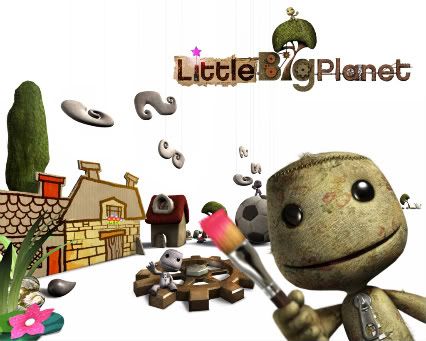 This article represents my personal views, which do not necessarily coincide with those of anybody else at Critical Gamer. Readers should also note that this article contains spoilers regarding the ending of God of War III.
This article represents my personal views, which do not necessarily coincide with those of anybody else at Critical Gamer. Readers should also note that this article contains spoilers regarding the ending of God of War III.
If you consider yourself to be a follower of a religion, have you ever thought about how your gaming hobby might clash with the teachings of your prophet/s or god/s? If you’re an atheist, has it ever occurred to you that perhaps turning your back on all such belief systems has allowed you to sidestep a potential moral minefield when playing videogames?
I’m not thinking of the limited moral choices offered in games such as Bioshock, GTA and Red Dead Redemption – though this is an issue I will return to. If the issue of religion and morality in relation to videogames is ever to be discussed however, now is surely the time. Not only are moral choices offered in games such as those mentioned above, but graphics and sound are almost unbelievably realistic compared to the games of just twenty years ago. Furthermore, there is now a real push to immerse the player in the gaming experience more than ever. 3D visuals, whilst still not nearly as appealing to the general public as many in the industry would wish, will doubtless get a huge boost with the release of the 3DS. Sony and Microsoft have finally relented and are following in Nintendo’s footsteps with gusto, regarding motion control. Sony’s Move claims the most accurate motion sensing yet and Kinect, of course, goes one step further – allowing, encouraging, demanding that the player act out on – screen actions with their whole body. By the end of the year, all three home consoles will allow the player to put real physical effort into playing their games.
Is there any precedent for religious followers or leaders showing concern over the content of videogames? There are, of course, several. Surprisingly perhaps, none – at least, none of the high profile ones – have suggested that the teachings of religion ever clash with the idea of gaming in general.
 Most of you will probably be familiar with the LittleBigPlanet controversy. Just a few weeks before the game was due to be released in most territories (it had already hit the shelves in a few minor ones), Sony recalled all physical copies that had been pressed and issued a worldwide patch – to replace one song on the soundtrack. This was because of a post made by one person on the official Sony forums. I shan’t link to it here, as I’m sure he’s already suffered a flood of hate mail from racist idiots, and I have no desire to start a second round. I will, however, reproduce the post in its entirety excluding identifying personal information:
Most of you will probably be familiar with the LittleBigPlanet controversy. Just a few weeks before the game was due to be released in most territories (it had already hit the shelves in a few minor ones), Sony recalled all physical copies that had been pressed and issued a worldwide patch – to replace one song on the soundtrack. This was because of a post made by one person on the official Sony forums. I shan’t link to it here, as I’m sure he’s already suffered a flood of hate mail from racist idiots, and I have no desire to start a second round. I will, however, reproduce the post in its entirety excluding identifying personal information:
very urgent about little big planet lbp
16-10-2008 08:35 AM
To: Sony Computer Entertainment & Media Molecule
While playing your latest game, “LittleBigPlanet” in the first level of the third world in the game (titled “Swinging Safari”), I have noticed something strange in the lyrics of the music track of the level. When I listened carefully, I was surprised to hear some very familiar Arabic words from the Quran. You can listen to part of the track here:
mt14.quickshareit.com/share/p…lip22503c0.wav
The words are:
1- In the 18th second: “كل نفس ذائقة الموت” (“kollo nafsin tha’iqatol mawt”, literally: ‘Every soul shall have the taste of death’).
2- Almost immediately after, in the 27th second: “كل من عليها فان” (“kollo man alaiha fan”, literally: ‘All that is on earth will perish’).
I asked many of my friends online and offline and they heard the exact same thing that I heard easily when I played that part of the track. Certain Arabic hardcore gaming forums are already discussing this, so we decided to take action by emailing you before this spreads to mainstream attention.
We Muslims consider the mixing of music and words from our Holy Quran deeply offending. We hope you would remove that track from the game immediately via an online patch, and make sure that all future shipments of the game disk do not contain it.
We would also like to mention that this isn’t the first time something like this happened in videogames. Nintendo’s 1998 hit “Zelda: Ocarina of Time” contained a musical track with islamic phrases, but it was removed in later shipments of the game after Nintendo was contacted by Muslim organizations. Last year, Capcom’s “Zack & Wiki” and Activision’s “Call of Duty 4″ also contained objectionable material offensive to Muslims that was spotted before the release of the final games, and both companies thankfully removed the content.
We hope you act immediately to avoid any confusion and unnecessary controversy, and we thank you for making such an amazing game.
The song in question is performed by Toumani Diabate, who is a devout Muslim himself (and in fact, the song was widely available for about two years before this post was made). Asserting that the song is offensive to all Muslims is clearly erroneous. As politely as the above message is written, there seems to be a thinly veiled threat of a public protest if the song is not removed.

Toumani Diabate
Although the forum post refers repeatedly to ‘we’, it can only be proven that one person was offended at the time, and felt the need to protest to Sony. On the other hand, the American Islamic Forum for Democracy actually publicly condemned Sony’s decision to recall and censor the game. M. Zuhdi Jasser M.D. issued a long statement to Edge at the time on behalf of the organisation. He cited the example of Mohammed defending “the rights of his enemies to critique him in any way even if it was offensive to his own Islamic sensibilities or respect for Koranic scripture” and Jasser also pointed out that “Muslims cannot benefit from freedom of expression and religion and then turn around and ask that anytime their sensibilities are offended that the freedom of others be restricted”.
The previous year (2007), Resistance: Fall of Man briefly found itself in the crosshairs of the Church of England, thanks to its brief inclusion of Manchester Cathedral during gameplay. The Dean of Manchester Cathedral, the Very Reverend Rogers Govender, said:
“We are shocked to see a place of learning, prayer and heritage being presented to the youth market as a location where guns can be fired.”
What he failed to add, of course, is that a) Resistance carries a 15 certificate in the UK, and b) Manchester Cathedral is only presented as a location where guns can be fired because it is, in the context of the game, full of hostile alien monsters. The only human being in any danger there is your character.
These two recent examples, as I have said, do not (strictly speaking) propose a conflict between religious beliefs and the actions possible in a videogame. So what, exactly, was behind these protests?
In the forum post regarding LittleBigPlanet, the author at one point boasts of how Muslim protests previously effected changes in Ocarina of Time and Call of Duty 4. This clearly indicates that this individual believes his religion has the power and the right to edit, censor, and shape entertainment publicly available to people of any, all, or no religious beliefs. Before Christians start to feel superior (as they are wont to do), they would do well to remember that people from their many denominations have protested against various forms of entertainment more than people from any other religion in the world.
The example of Sony vs the CofE is actually slightly bizarre. If the Church had won (hilariously, they wanted the game banned; as it was, they had to settle for metaphorically sulking in the corner), the results would actually have been counterproductive for them. Is it entirely ridiculous to believe that people with no previous knowledge of, or interest in, Manchester Cathedral would have visited the building after seeing it in the game – if only to see how accurately it had been reproduced? The case is reminiscent of Polaroid’s brief demand that Outkast remove the line ‘shake it like a Polaroid picture’ from the song ‘Hey Ya’ (shaking a polaroid picture doesn’t speed the development along, and can actually damage the final image). They soon gave up the protest when they realised that, basically, they were getting free advertising courtesy of one of the biggest bands in the world.

Manchester Cathedral in Resistance: Fall of Man
One major religion I had enormous trouble finding articles regarding, when it comes to protests against videogames, was Judaism. In fact, I couldn’t find anything (though this is not to say that there is nothing to find). Actually when it comes to protests against films, music or any other kind of entertainment, the Jews are very rarely to be seen. Certainly not in proportion to Christianity and Islam. Why is this? Well thanks to my Christian education, I am largely ignorant of other religions – despite spending an extra two years studying philosophy. I’ve done my best to rectify this since leaving school twelve years ago, but I still have a long way to go. Nonetheless, I feel confident in saying this much:
Theoretically speaking, Jewish people should be easier to offend than the followers of any other religion. Judaism is a belief system – it’s possible to convert to and from it – but generally speaking, being Jewish is an inseparable mix of belonging to a religion, and belonging to a people. Those outside this worldwide community may, therefore, believe that they are a people quick to be offended; religiously, nationally, or both at the same time. This quite simply doesn’t seem to be the case, however. Perhaps this is because the Jews are able to do what no other religious grouping seems able to do; laugh at themselves.
The list of Jewish comedians seems endless; Woody Allen, the Marx brothers, Sacha Baron Cohen, Mel Brooks, Marty Feldman, and Jerry Lewis to name just a few. Often, this comedy will centre on Jewish stereotypes and the preconceptions non – Jews have of them. Sacha Baron Cohen’s character Borat is actually an anti – semite, a fact he plays on several times during the Borat movie and the short – lived Ali G USA TV series (where Bruno also made his first appearance). Rather than becoming angered at imagined slights, it seems that the Jews generally tend to tackle real hatred head – on, often through the medium of comedy.
But I digress. There is one final point I would like to make regarding the matter of religious protest, and that is that the businesses under fire often – if not always – actually welcome such protests. The decision to commission a game based on the first part of an epic fourteenth century poem was odd, to say the least. When approving Dante’s Inferno, were EA hoping for some free publicity courtesy of religious groups outraged at the idea of a videogame that takes place in Hell? The fact that they resorted to faking a religious protest against the game outside last year’s E3 suggests so.

The fake protest against Dante's Inferno outside E3 2009.
Nonetheless, developers tend to shy away from the subject of religion. The Assassin’s Creed scriptwriters had a wealth of rich material at their hands, especially with the first game; the history of Islam, Judaism and Christianity, what they have in common (not least highly revered holy sites), and how and why conflicts have previously erupted between them. Terrified of offending somebody somewhere however, this has been all but ignored in the games available at time of writing.
Darksiders is (very) loosely based on the end of the world as prophesied in the Bible. The game’s creative director Joe Madureira told IGN: “We did play down the religious aspects as much as we could, just because we wanted it to appeal to as many people as we could, regardless of what religion you are”. In other words, Vigil Games shied away from exploring the religious narrative for fear of alienating or angering people solely on religious grounds.
But is there perhaps something in the fundamentals of many videogames that should disturb the religious – but doesn’t? After 14 years of Catholic education, I’m now going to write the rest of this article with Christianity first and foremost in mind; though some or all of it will apply to other religions, too (particularly Jewish beliefs, due to the cross pollination between Christianity and Judaism). First of all, we need to consider one of the Ten Commandments:
‘You shall not covet your neighbour’s house; you shall not covet your neighbour’s wife, nor his male or female slave, or ox, or donkey, or anything that belongs to your neighbour’
God has ordered His people through Moses (Exodus) and directly Himself (Deuteronomy) to never have feelings of jealousy. In addition, envy is now traditionally considered to be one of the ‘seven deadly sins’. Feelings of jealousy are strictly forbidden by Christian doctrine. Stop to think about that: God has declared that a feeling is forbidden.
An emotion. An often uncontrollable emotion, that could damn you to eternal torment.
Why? It could be argued that envy could conceivably lead to other, more serious sins; theft, murder, rape. This idea is never even hinted at in the Bible, however. Jealousy/envy is condemned in and of itself. To understand why, we should perhaps look at the issue of the soul.
Every religion believes in the existence of the soul, or a close approximation of it. What, exactly, is the soul? The soul is the ‘true’ you, the you that survives the death of your physical body. The you that, according to some religious beliefs, existed before your physical body was even born. The soul is what you truly are, more than your body could ever hope to be; your constant, immovable presence in existence. Therefore, because your soul is you and you are your soul, it must be possible to in some ways sin without your physical body committing the sin with you. This idea is certainly supported by the strong condemnation of envy (a purely emotional experience) directly from God and, arguably, by the concept of your soul being punished for eternity once it’s left the body behind. Indeed, also by the concept of Lucifer the fallen angel.
 If this is the case, then those who believe in the soul should perhaps think carefully about what their actions in videogames mean in regard to their religious beliefs. No holy book in existence deals with the idea of exploring and taking part in virtual worlds, as most of them were written thousands of years before videogames were even possible. If they did however… what would they have to say?
If this is the case, then those who believe in the soul should perhaps think carefully about what their actions in videogames mean in regard to their religious beliefs. No holy book in existence deals with the idea of exploring and taking part in virtual worlds, as most of them were written thousands of years before videogames were even possible. If they did however… what would they have to say?
I’m sure that in just sixty seconds, you could name a few dozen games that require you to kill in order to progress. Your body is doing very little; but your mind, your imagination, the you inside the body, your soul – is on a rampage. Kill after kill after kill. And as I said at the start of this article it may become a holistic experience, with new controllers and control methods allowing you to physically act out the on – screen actions closer to the real thing than ever.
But in the here and now, and for decades, to put it bluntly: videogames have allowed people to theoretically kill via their souls. Murder is forbidden by any religion worth its salt; an easily identifiable sin. When a game such as Red Dead Redemption comes along that complicates matters further, by offering the player choices such as whether or not to kill a certain character at a certain point, and allowing them to go on a murderous rampage whenever they wish. In fact, in Grand Theft Auto IV, you could probably commit every sin explicitly forbidden within the space of five minutes. Not in the physical world, of course – but in your head, on the inside. Where you’re taught the soul resides; what you’re taught the soul is.
Two arguments could be made which could be seen as bringing the above talk of ‘sinning via the soul’ crashing to the ground. Firstly, it could be quite reasonably argued that murder, for example, isn’t a sin if it isn’t committed in the physical world. Secondly, it is surely impossible to sin against computer algorithms. The little people on your TV screen or monitor are not real, and therefore can not be sinned against. Allow me, therefore, to bring the discussion to the online arena.
A theoretical example, now. I’ve been in similar situations myself before, and I’m sure you have too. Imagine: you’re playing your favourite online shooter against other people. Let’s say for the sake of argument it’s Call of Duty: Modern Warfare 2. You’ve made a good start to the match, reaped a few impressive kills without dying; and then you’re killed yourself. Shortly after respawning you are killed again, by the same player. You respawn again; the same player kills you again, before you manage to get any more kills yourself. You seek him out in revenge; he kills you again. Now, you’re furious. You charge to his last known position, taking less care than usual, concerning yourself only with reaching him and taking revenge.
What is going through your mind in such a situation? Very little, except thoughts of hatred and revenge. Somewhere in the world, there is another human being you are directing these feelings of fury and demands for retribution towards. In the context of this game how, exactly, do you intend to set things to rights?
By killing him.
Should you succeed you will not have taken a life, and he will not die. You are theoretically interacting soul to soul, however. You have both automatically reduced your peripheral vision to the confines of the game screen; you have both thrown your concentration and passion into the game; you are both doing very little with your bodies, while the ‘inside’ you – the soul – is alert and entirely active. Is this really a million miles away from, and worse than, what is surely the more innocent feeling of envy?
Speaking of which, if you’ve ever looked at another player’s stats/awards and been jealous – you’ve undeniably sinned.
 I’d like to finish by explaining how one of the most successful games of this year has proven to be the most brazen champion of atheism the industry has ever seen, and yet the fact has (so far as I can tell) gone unrecognised and unreported, thereby proving gaming to be a pursuit that fundamentally bypasses religious sensibilities. The game in question is God of War III.
I’d like to finish by explaining how one of the most successful games of this year has proven to be the most brazen champion of atheism the industry has ever seen, and yet the fact has (so far as I can tell) gone unrecognised and unreported, thereby proving gaming to be a pursuit that fundamentally bypasses religious sensibilities. The game in question is God of War III.
For the most part, God of War III is simply an action game that draws inspiration from Greek mythology (sometimes confusing it with Roman mythology). The last leg of the experience, however, is a drawn out allegory of man’s fight against and liberation from religion. The stylised sequence in the dark wasn’t done that way simply to look good; it was to emphasise the message that Zeus’s power over Kratos (the power of religion over men) was darkness. Darkness clearly represents uncertainty and fear, exemplified by the guilt Kratos is forced to face in his journey through the dark. It is repeatedly stated in the game that Pandora’s Box contains ‘the power to kill a god’. Not the power to kill Zeus; the power to kill any god. The power is eventually revealed to be light – the light of hope and confidence to dispel the darkness of fear and uncertainty.
After exiting the darkness, the player is unexpectedly given a first person view to kill Zeus. The kill when it finally happens is drawn out, violent and bloody. With no on – screen avatar and extreme violence, the player is as involved in the kill as possible. In fact the screen slowly fills with blood until nothing can be seen, and does not clear until the player stops hitting the buttons on the controller. A very clever touch.
The player has killed the god, and almost certainly with more violence than was necessary.
With a trail of dead gods behind him, Kratos takes control of his life in the most definitive way possible; he chooses how, when and where to die by killing himself, or at least trying to.
And they all lived nihilistically ever after.

















This is the second article I catch from you guys. It really provides a different scope of gaming. Keep the good writing.
Wow. Let me just get my head around that…
I’m not religious, if anything (at the risk of sounding like a crazy person) I’m more afraid of a bunch of aliens coming down to harvest us for their DNA/Gene lunch than being punished in hell when I die, but I can belive there’s some wheel of fate of some kind. Maybe that IS god, who knows. I belive in the soul; I belive the more often you put your soul in dark places, the harder it is to make it shine again.
Have you ever killed an animal for a meal before? A real, flesh and blood, kicking and biteing, gasping for it’s life animal? It takes concentration, blankness of mind and almost a removal of mind from body. Unless killing is found to be fun that is. Killing in reality is VERY different than pressing a button.
I’m not trying to belittle your article here, I think what you’ve written is a real mind-opener, a punch in the face of a thought provoker to say the least. I’ve never thought about it this way before, honestly, my heads still spinning from it. Or maybe that’s because I’m still half asleep and I ain’t had my caffene and nicotine yet!
I’ll come back later….
A great article.
I think that many of the reasons a religious person might have an issue with games inducing participants to ‘think’ bad things would apply to moralistic atheists too?
You raise though a great question – are we really wanting to kill the virtual or avatar character in the game? Or do we just want to ‘win’ – after all I don’t actually want to hurt or kill someone when doing paintball. Or do I?!
I remember chatting to my rabbi about Scotch – some are kosher and others are not. If they are made in Sherry casks they might not be (due to animal fat being used in the process of sherry making). However he felt that if one could not taste the sherry, and i mean the sherry rather than the difference between a scotch with or without the sherry, then you were not knowingly drinking sherry and would be ok! Now that’s a rather legal, and hence Jewish way of looking at ritualistic law (you ever wondered why there are so many Jewish lawyers?), but the point (there is one I think) is that if I play MW2 and don’t actually feel like I want/need to or AM killing someone then the fact I might be according to the visuals and language of the game doesn’t mean I have ‘sinned’ or thought a corrupt thought as that thought never existed.
The wider issue though, is the same one we have tackled in previous articles about violence and videogames in general. Does playing violent or sexual games regularly desensitise one to such thoughts so that over time they do become real, and easier to express in the real world? I would assume that if you think the answer is ‘yes’ then that is why whether you be religious or just very humanist you too might wish to limit the impact games have on your life.
It’s nice to find an article online that isn’t just a rehashed press release and actually tries to say something about games in general (even if it has GOW3 spoilers…..).
I’ve long felt that morality in games can only ever be described as ‘virtual morality’ in that the player know its not real etc. Reading a controversial or blasphemous book does not equate to blasphemy. However, it is the knock on after the game has ended that really counts. Games fans are all too ready to pounce on any suggestion that violence in games needs to be at least looked at – they put their fingers in their ears and fear that the big bad censors want to take their hobby away from them. But the debate needs to be addressed.
It’s not the violence or blasphemy or made up religions that really matter – its the rapidity at which we can now consume them, as the norm, in a blaze of HD textures and surround sound. The real problem is the instant gratification, and a build up of gratification after gratification – kill after kill, game after game.
People need balance.
In your view of the commandment against coveting, I think you’ve interpreted it slightly wrong.
The definition of the word covet, according to Merriam-Webster’s dictionary, states:
1: to wish for earnestly
2: to desire (what belongs to another) inordinately or culpably
which implies not just a feeling but a deliberate intent to feel a certain way.
I think it’s up to each gamer to figure out whether killing in a video game is sin or not because I think each person has to account for their own conscience. What we put in and get out of video games depends on what we are as individuals. If someone feels like they’re actually murdering someone, then maybe they should take a step back and question that motive.
I’ve played Modern Warfare 2 with religious gamers who didn’t seem to be morally grieved, and I’m sure there are games with religious references that are totally missed. Like art, be it literature, film, or visual — I think video games can be dangerous, thought provoking, influential, and entertaining. It’s up to the person experiencing it to gather what they can and use it, hopefully, for benefit.